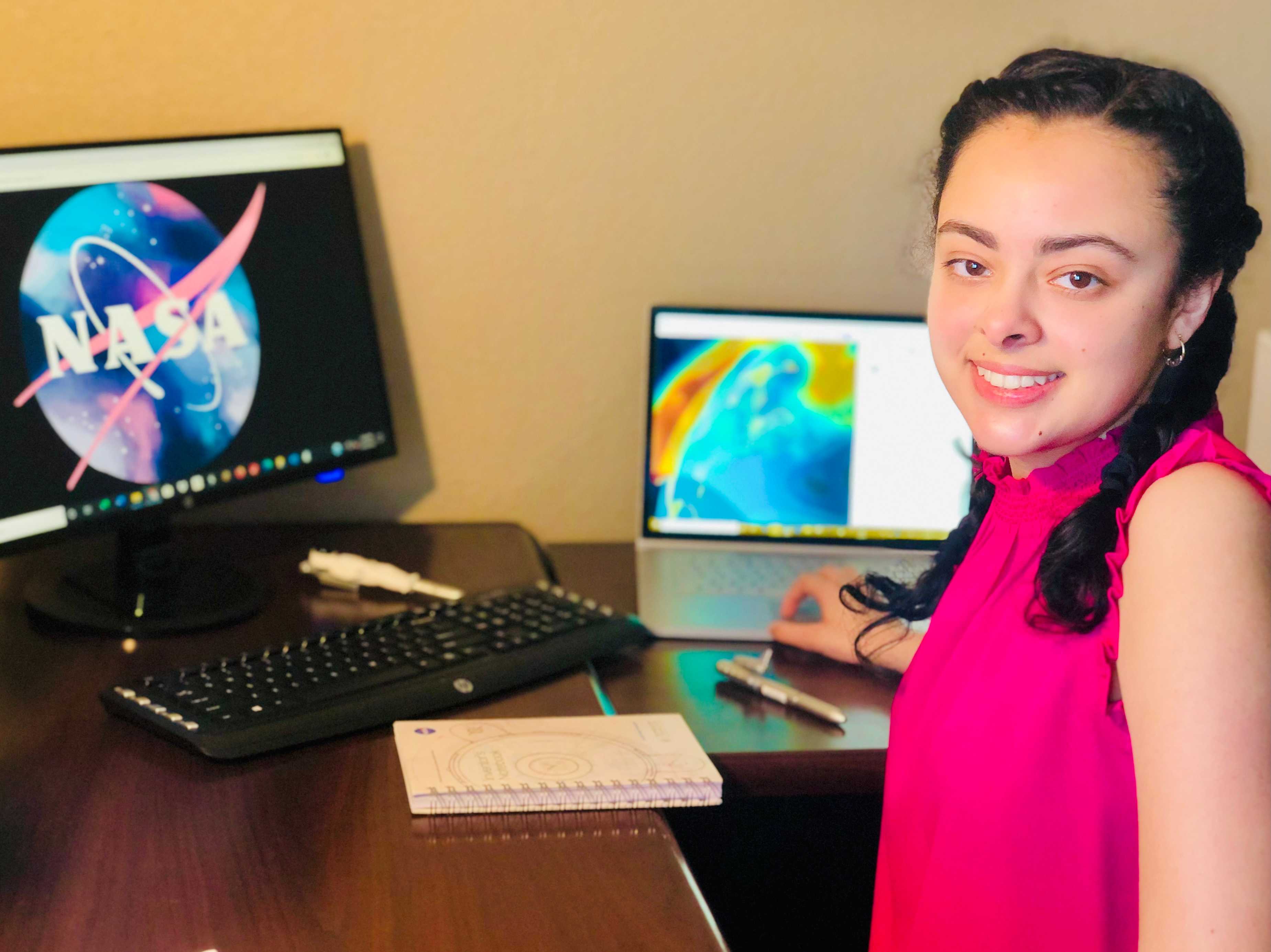
Forging Ahead with Research while Sheltering in Place
The transition period to remote learning was a very uncertain time, especially for research and the Caltech Summer Undergraduate Research Fellowships (SURF) program. Many hands-on projects had to pivot at the last minute to facilitate off-campus contributions. However, many Techers were able to take advantage of the research opportunities offered at Caltech and JPL to make the best out of remote learning and research. To paint a picture, I’ve interviewed a few talented Techers for some insight on what researching from home looks like for them.
Q: What does your research consist of?
Tyrone McNichols, ‘23, CS/Math: “I work for the Processors System Development Group at JPL. My work involves developing software for radio astronomy, in particular for NASA’s Deep Space Network”.
Kristina Stoyanova, ‘23, CS: “At the Ron Weiss Mammalian Cell Biology Lab at MIT, I use convolutional neural networks to predict regions of epigenetic marks on DNA sequences. One application of this is to help biologists computationally identify non-functional regions of new genes they’ve created before they even put the DNA into a host organism! The intention is to reduce the trial and error process of research”.
Anna Li, ‘23, Chemistry: “I work on doing molecular dynamics and quantum mechanics calculations on the oxygen evolving complex in Photosystem II as a joint project between the Fischer and Goddard labs. We are working on exploring the mechanisms of photoassembly of the metal cluster, as well as the mechanisms during oxygen evolution”.
Q: What does researching from home look like for you?
Tyrone McNichols, ‘23, CS/Math: “Mostly remote programming and testing. I also go to a few webex meetings for my group”.
Kristina Stoyanova, ‘23, CS: “Reading papers, planning architectures for the models, and debugging code”.
Anna Li, ‘23, Chemistry: “Well it just looks like me dinking around on my computer in one of Caltech’s clusters”.
Q: How do you stay connected? What programs facilitate your online research?
Tyrone McNichols, ‘23, CS/Math: “JPL has a slack for employees, and another one specifically for interns which helps a lot. I’m also a part of some employee groups at JPL”.
Kristina Stoyanova, ‘23, CS: “My graduate student mentor Sebastian Palacios, Prof. Ron Weiss, and I have a Slack channel, and we Zoom every week to go over my project’s state”.
Anna Li, ‘23, Chemistry: “I meet with my mentors every week or every other week to go over results. I use NAMD/LAAMPS for molecular dynamics and Jaguar for quantum mechanics”.
Q: Any advice for anyone who is or will be researching from home?
Tyrone McNichols, ‘23, CS/Math: “Make sure you’ve got a consistent work schedule. It’s really easy to get off track online, but separating your life into times when you’re doing work and when you’re not can help a lot”.
Kristina Stoyanova, ‘23, CS: “Even if you want to do laboratory work there is so much prep work (reading papers, training, designing plans for experiments, reading more papers) that could help you hit the ground running once we get back in the lab. Even computational projects can later be verified experimentally. I wish everyone the best of luck with their research!”
Anna Li, ‘23, Chemistry: “Don’t let research become too much stress, classes always come first”.
Similar to my peers, my experience, conducting research at JPL remotely, hasn’t been much different from distance learning, structure wise. Luckily, the project I’m involved in is heavily computational, so I am still able to conduct research and contribute to the project remotely. However, just because my internship is online does not mean that the standards at which I need to perform have diminished. It does take a lot of planning and time management to ensure that I stay on track and to reach my research goal in a timely manner. My mentor and I Zoom regularly to discuss updates and results and we share all our work via cloud to make things more accessible. Additionally, my lab has weekly meetings to explore the different research being conducted by members in the lab and catch up with one another. JPL has also been doing a great job at finding creative ways to ensure that interns can continue to learn, conduct research, and feel included. For example, there are multiple informational events and seminars held virtually every week.
Although it’s not ideal to work remotely, and I would have preferred to be on site, obviously no one can control the pandemic. Remote research has been a great learning experience nonetheless and I am thankful for the growth opportunities it’s provided, not only for me but for many other Caltech students as well.




